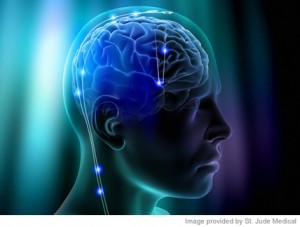
This is a test
Canadian researchers have verified that deep brain stimulation (DBS) is a safe, new approach that has shown tremendous results for patients with treatment-resistant depression.
Published online today, in Biological Psychiatry, the study, lead by Dr. Andres Lozano, Neurosurgeon at Krembil Neurosciences Centre – Toronto Western Hospital and Canada Research Chair in Neuroscience, involved using DBS in 20 patients, targeting an area of the brain that is shown to be overactive in depression. [continue reading…]
A new Mayo Clinic study shows that variations in the serotonin transporter gene could explain why some people with depression respond better than others to treatment with citalopram (Celexa), an antidepressant medication.
The study, in the current issue of the American Journal of Medical Genetics Part B: Neuropsychiatric Genetics, examined the serotonin transporter gene, or SLC6A4, in 1,914 study participants. The study showed that two variations in this gene have a direct bearing on how individuals might respond to citalopram. SLC6A4 produces a protein that plays an important role in achieving an antidepressant response. [continue reading…]

New data may help doctors more accurately diagnose patients
The expectation that East-Asian people emphasize physical symptoms of depression (e.g. headaches, poor appetite or aches/pains in the body) is widely acknowledged, yet the few available empirical studies report mixed data on this issue. A new study from the Centre for Addiction and Mental Health (CAMH) debunks this cultural myth, and offers clinicians valuable insight to into cultural context when assessing a patient, leading to more accurate diagnosis. [continue reading…]
The brain is the key organ in the response to stress. Brain reactions determine what in the world is threatening and might be stressful for us, and regulate the stress responses that can be either adaptive or maladaptive. Chronic stress can affect the brain and lead into depression: Environmental stressors related to job or family situation are important triggers of depressive episodes and major life events such as trauma or abuse amongst the most potent factors inducing depression. The World Health Organization (WHO) predicts that major depression will soon be the world´s greatest public health burden. [continue reading…]


